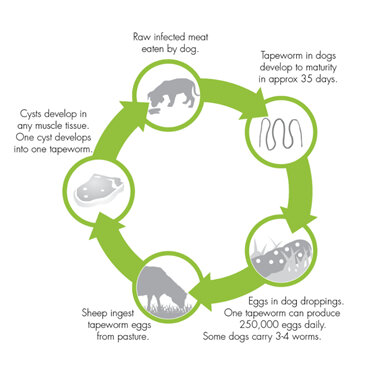Franklin Vets
Franklin Vets - excellence in veterinary care for dairy, farming, lifestyle, equine and household pets. BESTPRACTICE ACCREDITED NZ.

Arthritis is very common in older dogs, more so in working dogs due to their high level of physical activity and risk of injury. Arthritis is not curable and can only be managed therefore early action is important to slow progression as much as possible to allow your working dog to live a full and active career.
Arthritis can be difficult to detect in working dogs who tend not to show pain and continue to work in spite of significant discomfort. Common signs include:
Anti-Inflammatories
Anti-inflammatories are used to manage pain and inflammation associated with worsening joint conditions. There are a variety of options available and dosing varies depending on the individual animal. We recommend continuous low dosing for management of pain with increasing to full doses on days where dogs are showing an increased level or pain or are going to be doing large amounts of exercise.
Synovan (Pentosan)
This is an injectable supplement that is incorporated into the joint to slow cartilage degradation, improve the lubricating ability of joint fluid, reduce inflammation and improve blood supply to the joint for better healing. It is given as a series of four once-weekly injections followed by monthly maintenance injections. Response is variable between dogs with some showing significant improvement.
Joint and mobility diets incorporate ingredients to support joint health such as glucosamine, omega 3s and chondroitin. These are a useful tool to aid in arthritis management however take care to avoid restricted calorie diets designed for overweight dogs.
Fish oil capsules are a good source of omega 3 and 6 essential fatty acids to support joint/skin health and reduce inflammation however they need to be used at an appropriate dose to be effective. We offer both Antinol and 4Cyte, capsule and liquid supplements for supportive treatment of arthritis and joint health. Talk to your vet to work out a diet and supplementation program that meets your team’s needs.
Providing well-padded, insulated kennels reduces energy expenditure on keeping warm allowing better maintenance of body condition. Arthritis symptoms are worse in damp, cold conditions. Providing a coat for warmth in the winter seasons can go a long way for energy conservation.
Constipation is very common in working dogs, especially Huntaways. Working dogs are often fed majority meat diets which predispose to constipation due to the low fibre content.
Signs of Constipation Include
There are many causes of constipation ranging from dietary to enlargement of the prostate and abnormal healing of the pelvis following a fracture. The longer the episode goes on, the more water is absorbed from the colon and the harder it is to get things moving again. Early treatment is key to avoiding the need for procedures under general anaesthetic and reducing the risk of long term damage to the rectum and colon. Untreated or repeated episodes of constipation can result in obstipation requiring surgical removal of much of the colon.
Preventing Constipation

Fleas and Worms
Fleas
Dogs can catch fleas from other dogs, cats or the environment. Staying on top of flea and tick prevention year-round but especially through the summer months is important to break the cycle. Once fleas have set up an infestation it is important to treat the kennels and bedding to remove the source. Fleas cause itching and in severe cases can lead to inflammation of the skin, hair loss and infection.
Worms
Worm control is key for farm dogs both for themselves and for the health of stock. Hookworm larvae migrate through the skin causing itching and irritation, therefore keeping on top of roundworms with three monthly worming is key. Keeping faeces out of kennels removes the source of the worm larvae and helps in control by breaking the cycle of re-infection. We recommend Bravecto 3 monthly chews or 6 monthly spot-on.
Sheep measles (see cycle to the right) refers to a tapeworm that cycles through both dogs and sheep – the adult worm lives in the dog with larvae forming cysts within the muscle of sheep and goats after they pick them up from pasture where dogs have been. Dogs should be treated monthly with a product containing praziquantel to ensure they are not carrying any adult tapeworms – we recommend Wormicide. Any dog going onto a property where sheep and goats graze should be treated at least 48 hours beforehand.
Dogs are infected by eating larvae living within sheep or goat muscle – any sheep or goat meat should be either frozen to –10 degrees Celsius for 10 days or cooked until well done before feeding to ensure any larvae that may be present within the meat are killed. This is also true for any meat purchased from the supermarket or a butcher, none can be assumed to be safe to be fed without prior treatment.
Franklin Vets offers "Farm dog direct", a mail-order service where flea and worm treatment is delivered direct to your farm to ensure your dogs are kept safe from external and internal parasites.